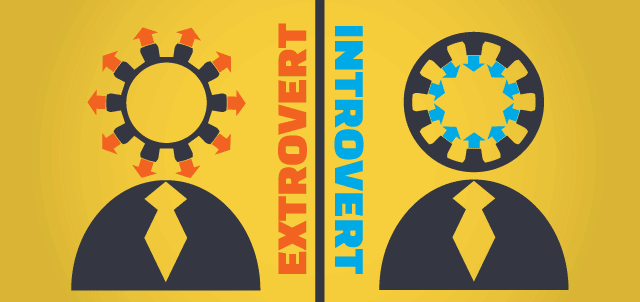Many people associate leadership with extroversion. That never-met-a-stranger, vocal, high-energy, Type-A stereotype is just one type of leader. The fact is, good leadership comes in many shapes and sizes – and personality types.
Some may think that extroverts are the natural leaders. But the unconvinced may be surprised to learn that some of today’s most successful business leaders are introverts. Consider this list: Bill Gates, Warren Buffett, Mark Zuckerberg, Marissa Mayer and Elon Musk. Yep, all introverts.
Historical leaders who were introverts include Abraham Lincoln, Eleanor Roosevelt, Albert Einstein, Rosa Parks and Mahatma Gandhi. Not a shabby bunch at all.
The truth is that businesses need both types of leaders. Here’s why introverts can make great leaders.
The historical and social context of introverts
It’s interesting to evaluate leadership types in the context of recent history: Fifteen to 20 years ago the U.S. workplace generally associated leadership as character, trust and integrity, which are values more closely tied to the quiet dignity of introversion.
More recently, businesses switched to thinking of leaders as the more vocal, charismatic motivators, or the traditional extrovert. Regardless of your corporate culture, it’s vital to promote both types of leaders to harness the strengths of both personality types.
It’s important to note that other countries perceive the leadership of introverts and extroverts differently than businesses in the United States. If your company operates in other countries, your gregarious, assertive extroverted leaders may not fit well with cultures that value a quieter, more reflective style.
The listener and thinker
Two of the key traits of introversion, listening to others and quiet reflection, can make them good at leadership. After all, it takes a listener to gather customer feedback and employee observations, and a critical thinker to put together common elements that may result in a new business opportunity.
When a customer or employee is unhappy, the introvert is more likely to listen in-depth before a rush to judgment, which helps the unhappy person feel heard. Yes, sometimes quick action is necessary, but in today’s complex world, a well-thought-out response may be the better option.
Yes, your sales force may be more heavily populated with extroverts. But that doesn’t mean an introvert can’t be great at sales. An introvert who listens well and pays attention to subtle clues may be better at sales than you’d imagine. Listening thoroughly is likely to make a customer feel understood and appreciated, which is always good for sales.
Not necessarily shy
Introverts possess a variety of skills that can make them good business leaders, particularly in businesses that value innovation and entrepreneurship. We’ve already mentioned critical thinking and listening skills. Introverts also tend to excel at written communication, outside-the-box-thinking and problem solving.
Introverts aren’t necessarily shy or quiet or bad at public speaking. Those are myths. However, your introverted employees may need a bit of coaching on why breaking out of their comfort zones is good for the company and their careers.
For example, technical fields such as engineering tend to draw more introverts. When your lead engineer, Tom, turns team manager, you may have to encourage him to engage in more face-to-face coaching than comes naturally.
Introverts on the management track may also need to be reminded to actively advocate for their employees, something extroverts tend to do better. Remember that much of good management technique can be learned and must be taught to extroverts as well as introverts.
Training opportunities abound
Extroverts, brace yourselves. Today’s all-digital, all-the-time environment means that young people entering the workforce tend to communicate in a more introverted fashion. They’re accustomed to highly individualized social interaction and communicating by text, social media and email to get and share information. This change, already seen in workplaces that hire millennials, points to training and development opportunities.
Your younger managers may need extra coaching on the value of face-to-face communications, what types of messages are better delivered one-on-one, and when to use email versus a meeting to deliver news.
When considering the leadership qualities of your team, remember: extroversion versus introversion is simply a matter of how a person handles stimulation. Extroverts gain energy from interacting with others. Introverts gain energy from quiet reflection and isolation. Both personality types can be equally creative, passionate and articulate leaders.
So, don’t overlook the quiet ones in the corner. They may harbor just the leadership qualities your company needs to succeed.
Whether you hire introverts or extroverts, you need to create a strategic plan for workforce growth. Download our guide How to Develop a Top-notch Workforce That Will Accelerate Your Business today.


